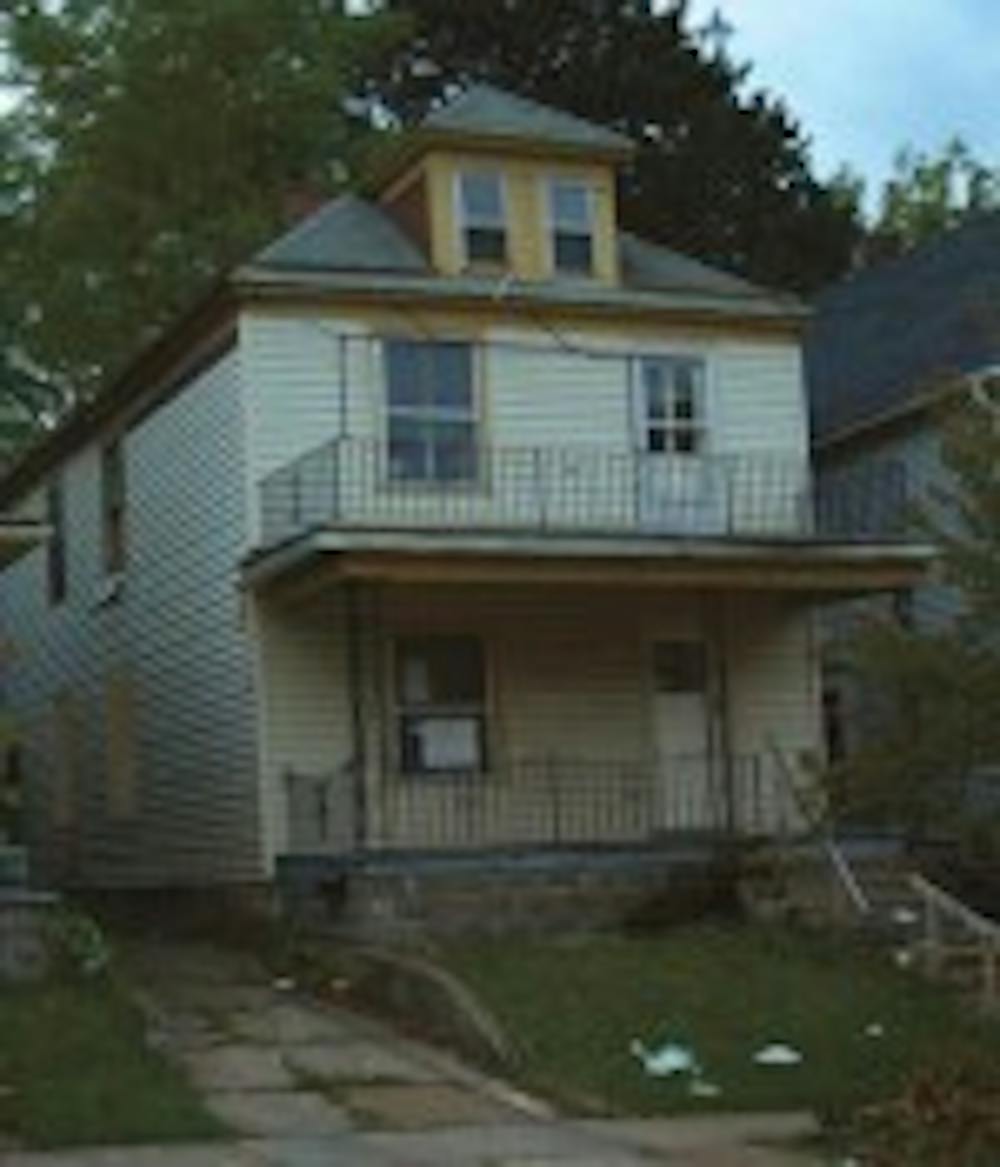Tempers flared Thursday night as angry University Heights residents confronted UB administrators, city officials and UB students at a public hearing addressing quality of life concerns in the University Heights district.
Cindy Anderson, a resident of Montrose Avenue, had several grievances about UB students. She claimed that students host raucous parties, defecate on front lawns, and "make love on the front porch across the street from my house."
"Students think this neighborhood is their personal garbage can," she said. "We pay taxes and keep the neighborhood stable, but we don't see the students taking care of the neighborhood."
Representatives from the sorority Delta Xi Omega - which maintains a house on Heath Street - defended UB students and said that the problems are not only caused by residents who attend UB.
Toby Shapiro, the Parent Program Coordinator for UB, agreed with the representatives from Delta Xi, saying UB students could not be singled out as the only destructive force in the University Heights area.
"When we got four names (of offenders) earlier in the year, two of them were former UB students, one was a guy this university has never even seen before, and then there was one UB student," he said.
Barbara Ricotta, the dean of students at UB, responded to concerns about UB's responsibility by citing numerous initiatives that the university takes to educate off-campus students. These initiatives, outlined in a handout given to residents who attended the meeting, include handouts and brochures given to all UB students that live off-campus. Topics of the brochures ranged from advice on how to responsibly move out of an apartment to advice on throwing a responsible party.
Shapiro called attention to the recently formed "Problem Properties Task Force," which was created to identify and correct the top "problem properties" in the University Heights area.
Still, some residents were not satisfied with how UB handles off-campus problems.
Highgate Avenue resident William Stewart said UB students should be treated as criminals.
"If these students were on the East Side of Buffalo, they'd be hoodlums," he said. "Over here, they are just seen as young adults being rambunctious."
Stewart said UB students on his block have torn down their own garage for firewood. He also said he saw a UB student shooting a rifle in a nearby backyard.
"They are not rambunctious young adults," he said. "They are a bunch of criminals."
University District Council Member Betty Jean Grant organized the meeting in response to what she said was an "overwhelming" amount of complaints to her office about quality of life issues in her district.
Grant said she met with Dennis Black, vice president of student affairs, and UB President William R. Greiner, two years ago to address concerns about the University Heights area.
"I don't feel that they are doing as good a job as they could in response to my concerns," said Grant.
Grant said UB should explore the selling of liquor on the North Campus, as well as having all Greek organizations move onto the North Campus. She said these measures would help UB monitor the students, and potential underage alcohol use, more carefully.
Grant also said that the University Police should be given the power to patrol the University Heights area, to help the understaffed Buffalo Police Department control disturbances.
In response to Grant's suggestions, Black said that the city of Buffalo should be responsible for monitoring the actions of the residents in the Heights, regardless of whether or not they are students.
"We're not the off-campus police department," he said. "When our students violate the standards of the community, the consequences should come from the community."
Black also disagreed with the notion of selling alcohol on North Campus.
"Given what we know about alcohol and college students, nobody should be permitting its use, on campus or off," he said.
One thing that Grant said she wants to make clear is that she is not anti-student.
"Students who display the right behavior can contribute greatly to any community," she said. "They can join or start block clubs. Students that integrate themselves into the fabric of the neighborhood enrich the community."





